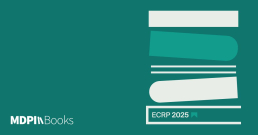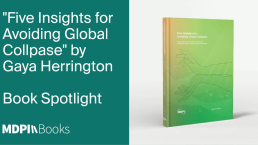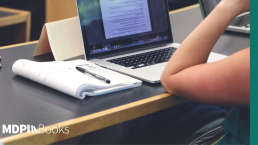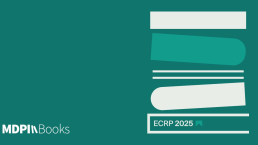
How to Navigate Academic Book Publishing as an Early-Career Researcher
As an academic, navigating the publishing landscape is tough. You may find yourself wondering, Where should I publish my work? Or, What do I need to know before submitting my research? Understanding the publication process is not something that comes fast or easily. Especially for early-career researchers.
Being an early-career researcher within academic book publishing only compounds these concerns. Open access book publishing is generally not as well established as open access journal publishing, making the route to publication more complex. Peer review for open access books is also more nuanced and demanding for reviewers, further lengthening the publication process.
Furthermore, as an early-career researcher, you might not yet have sufficient knowledge of the academic book landscape. This can put pressure on early-career researchers as they try to find a suitable publisher.
Luckily, there are things to keep in mind when learning how to navigate academic book publishing as an early-career researcher.
Who are early-career researchers?
Early-career researchers (ECRs) are typically defined as those who have recently completed their PhD or been awarded their first academic appointment.
ECRs are often in transitional periods. For example, they may be learning how to transition from supervised research to independent research. This transition is necessary to allow ECRs to develop their research skills and establish themselves within their respective subject areas.
In the process of trying to develop and establish themselves, ECRs often come across lots of boundaries. Whether these boundaries might be in the form of less visibility due to a low academic profile or fewer funding opportunities from institutions such as universities, ECRs must work tirelessly to transform themselves into proven academic figures.
Another difficult period of transition ECRs undertake is the one into academic publishing. But, as an ECR, what do you need to be aware of when making this transition?
Navigating academic book publishing as an early-career researcher
A significant goal for most early-career researchers is to become published. And having a tangible book researched and written by yourself is a great reward in itself. But there are significant advantages that come with publishing a book, too.
For example, it helps to further establish and cement your authority in your areas of expertise. This improves the visibility, reach, and impact of your research. Furthermore, it also helps you with future funding or teaching applications.
So, what are some tips for early-career researchers to keep in mind when navigating academic book publishing?
Getting your first manuscript right
Writing an academic book is very different from writing a PhD thesis. With this distinction, there are a few things to consider.
First, your target audience. Your PhD thesis is written to be read and assessed by examiners. For this audience, you develop a formal, objective tone of voice, ensuring that you cover the key points expected of a thorough scholarly study.
This isn’t quite the same for academic books. Yes, readers of such books may also be scholars who expect objectivity and rigorous analysis. However, your target audience is usually a lot broader with academic books. This broadness invites you to be more personable in your approach to tone and content.
If you’re turning your PhD thesis into a monograph, then you’ll also want to remove content that was added exclusively for the benefit of examiners. This may include shortening lengthy passages of analysis and deleting footnotes with information that the general reader may not need to know.
Choosing a trusted publisher
Predatory publishers cause issues for all kinds of researchers, but they can be especially problematic for early-career researchers.
Predatory publishers are those that charge a fee for publication with no intention of providing the expected services, such as peer review. These kinds of publishers can be hard to identify for those without the necessary knowledge or industry experience. Luckily, there are initiatives out there that can help.
Think. Check. Submit. is a cross-section initiative that uses a range of tools and practical resources to educate researchers on choosing a trusted publisher. Here are a few things to consider when looking for a legitimate publisher for your research:
- Is it easy to discover the latest books distributed by the publisher?
- Is the publisher clear on their website about the type of peer review used?
- Does the publisher ensure long-term archiving and preservation of digital publications, such as via OAPEN or CLOCKSS?
- Does the publisher provide clear guidelines for authors?
- Does the publisher allow you to retain copyright of your work?
For the full breakdown of what you need to consider when choosing the right publisher, refer to the Think. Check. Submit. checklist.
Building your portfolio and profile
Publishers like authors with established portfolios and profiles. This is because it demonstrates that their research is reaching people and having an impact. In other words, for a publisher, it has unique selling points.
As an early-career researcher, building your portfolio and profile is something you must actively work on. There are a myriad of ways to do this. For example, before publishing a book, producing articles and submitting conference papers can help build your academic profile. Furthermore, you can calculate your h-index or utilize online platforms such as Altmetric to see the engagement and citation impact of your research.
Elsewhere, you can get your name and research out there by producing blog content for relevant websites, contributing to digital forums, and participating in interviews.
Learning how to write an abstract
Knowing how to write an abstract may seem like a secondary concern. After all, abstracts are usually only around 250 words in length. Why worry too much?
Well, when getting your book proposal ready to submit to prospective publishers, you’ll need to produce a concise summary of your book’s topic and approach. This is where your abstract comes in.
An abstract is designed to inform readers of the main points of your book before they go on to read further. Therefore, it’s often the place where first impressions are made.
Since abstracts must include important information in a small number of words, they need to follow a precise logic. Therefore, there are certain things to include when writing an effective abstract.
- Background: This should justify the necessity of your research. Explain the gaps in your research field that your book addresses. Outline the theoretical or historical problem(s) your book looks to solve.
- Objective: This is where you state the purpose of your book. Readers should be able to decide whether your book was a success based on whether it succeeds in its initial aims.
- Methods: You should indicate what was done and how during your study. Choose the most relevant details to include here.
- Results and conclusion: Here is where you highlight the findings or data that allow you to draw conclusions. These conclusions should either support or disprove your initial thesis. Importantly, the findings should be convincing to the reader.
Priming yourself for challenges
Navigating academic publishing as an early-career researcher takes time. Transitioning from academia is a process—one that requires consideration and consistent effort in many areas.
Academic publishing can be a difficult landscape. And without experience or guidance, this landscape can feel impenetrable. But if you follow these tips for early-career researchers, then at the very least you’re priming yourself to face any challenges.
MDPI Books Early-Career Researcher Prize
Here at MDPI Books, we don’t just offer tips, however. That’s why we’re delighted to announce a new publishing opportunity for our early-career researchers, made possible through the sponsorship of four of our journals: Humanities, Philosophies, Publications, and Social Sciences.
One proposal per journal will be selected and receive full editorial support and a complete waiver of Book Processing Charges (BPCs), enabling open access publication at no cost to the author(s) .
For full details and to submit to the competition, see our announcement post about the prize.










